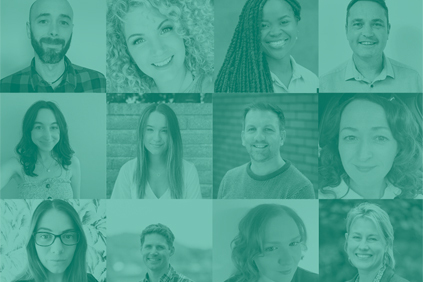Centre for Digital Public Services (CDPS) partnered with Welsh Government to find ways to make the planning system in Wales more efficient and sustainable.
The challenge
Planning is an essential government service, it protects us from poor developments, gives guidance to those who shape our towns and cities, and crucially, may stop your neighbour from blocking your sunlight with an ill-thought-out extension. To do this however, planning builds on years of law, legislation and policy and can be a confusing and difficult topic for the average person to understand.
This discovery project aimed to understand the planning system, identifying pain points, user needs, and challenges faced by both applicants and planning officers. Our goal was to produce recommendations to address or mitigate these issues. To do this, we employed a user-centred approach. This means we put the users of a service at the heart of our investigations, this could be the householder applying for planning permission, or a builder understanding the regulations of a job they wished to undertake, to the planning agent in the council office processing the applications and answering questions.
Our aim was to understand which areas need improvement and how we can meet user needs to make the process easier for everyone.
The planning system in Wales plays a crucial role in managing land use and development. But many stakeholders have identified that the current system is often inefficient and hard to navigate. Both the Welsh Government and local councils acknowledge that the system is complex, slow, and needs improvement.
Currently the process can be broken down into 3 major areas:
- Planning advice and guidance – providing information for those around planning.
- The pre application stage – a smaller scale planning assessment which helps identify key issues or risks ahead of a full application.
- A planning application – submitting the full details of a planning application through a centralised “planning portal” to get final approval.
This is a very simplified view of the process, and each stage consists of multiple steps, policies and procedures.
Applicants find the process confusing, which makes it harder to apply for planning permission, and planning officers are often bogged down with too much paperwork and inconsistency.
Some of the challenges include:
- Complexity for applicants: The process is so intricate that many people can’t submit accurate applications without professional help.
- Challenges for planning officers: Officers struggle with interpreting complex policies and legislation, which leads to inconsistencies.
- Inconsistent practices: Different local councils handle things differently, which adds to the confusion. As described by one user “It’s a minefield of conflicting information.”
Poor communication and unclear guidance lead to significant amounts of incorrect or failed applications. This, paired with lengthy approval times and policy changes, creates backlogs, leaving under-resourced local planners stretched.
What we did
During the discovery phase, we dug deep into the planning process by meeting with key stakeholders across the system. We mapped out the planning portal process and looked closely at how different councils handle pre-application services. We also spoke with third party planning agents, experts who support households and businesses with planning enquiries, and householders to understand their pain points and challenges. Through stakeholder engagement, research, mapping, surveys, and interviews, we aimed to get a clear picture of what’s making the process so hard to navigate.
Our recommendations
To make the planning process easier to understand and use for everyone involved, we’ve identified some enhancements to the planning process across the board:
- Create simple, user-friendly guidance: Develop clear, step-by-step instructions using plain language and visuals to help applicants and planning agents.
- Standardise policies and procedures across councils: Work towards making planning policies and processes more uniform across local authorities to cut down on confusion.
- Enhance training for planning officers: Review and revise training delivered to ensure officers fully understand and consistently apply policies and legislation.
- Simplify legislation and policies: Review existing laws and policies to remove unnecessary complexity.
- Regularly update the process: Set up a system for ongoing reviews of the planning process, incorporating feedback from all stakeholders to keep things improving.
What’s next
The team will look to focus on the pre application phase of the planning process in the upcoming phase.
Why we’re focusing on the pre-application process
The pre-application service is a key part of the planning system and offers real benefits to both applicants and planning officers. It gives applicants the chance to get early feedback on their proposals, which helps ensure their applications are more likely to be approved and reduces the need for back-and-forth. With at least one authority advising that applications which went through pre application showed a 100% success rate at the full planning application stage.
However, there’s still work to be done to raise awareness of this service and ensure it runs efficiently to allow authorities and users to make the most of the process.
We’re now moving into the next phase of our project, partnering with Welsh Government and 3 local authorities in Cardiff, Vale of Glamorgan, and Gwynedd.
The goals for this phase include:
- gaining a deeper understanding of the pre-application process in these authorities from start to finish
- examining how the pre-application stage connects to the full planning pipeline
- identifying the needs of both local planning authorities and applicants
- pinpointing pain points within the process
- defining a minimum viable product to tackle the key issues
Following this, the team is looking to make sure designs or content created can also be shared wider to support planning across Wales.
The team will be working in the open and sharing their learnings through this process.
If you’d like to learn more about the project or get involved, email user.research@digitalpublicservices.gov.wales.
